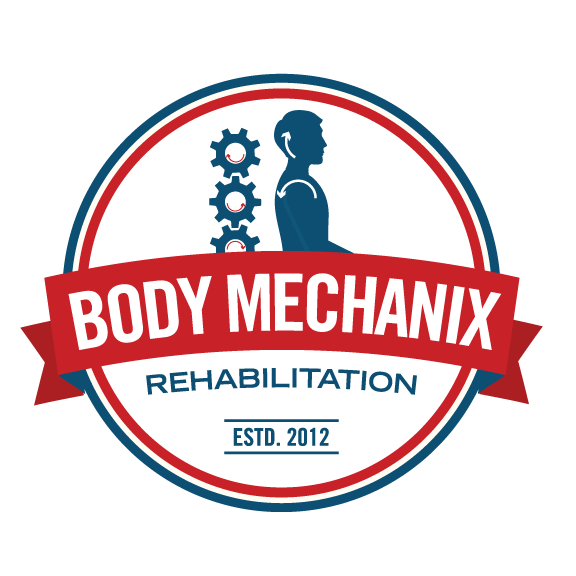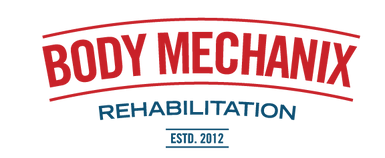Effective Strategies for Injury Rehabilitation
- Body Mechanix Rehab

- Nov 20, 2025
- 3 min read
Recovering from an injury can feel overwhelming. You might wonder, Where do I start? or How can I make sure I heal properly? We’ve all been there, and we want to share some effective strategies that can help you regain strength and confidence. Healing is a journey, and with the right approach, you can take control of your recovery.
Why Choose Holistic Recovery Programs?
Have you ever thought about treating your injury as more than just a physical problem? Holistic recovery programs focus on your whole well-being - body, mind, and lifestyle. This approach helps you heal faster and prevents future injuries.
Holistic programs combine physical therapy, nutrition, mental health support, and lifestyle changes. For example, while physical therapy strengthens your muscles, mindfulness techniques reduce stress that can slow healing. Nutrition fuels your body with the right building blocks for repair.
If you want a comprehensive plan, consider injury rehabilitation programs that offer this integrated care. They tailor treatments to your unique needs, making recovery smoother and more effective.

Building a Strong Foundation: Early Steps in Recovery
What should you do right after an injury? The first days are crucial. Rest is important, but complete inactivity can weaken your body. Instead, focus on gentle movements and proper care.
Here are some early steps to consider:
Control inflammation: Use ice packs and elevation to reduce swelling.
Manage pain: Follow your healthcare provider’s advice on medication or natural pain relief.
Start gentle motion: Simple range-of-motion exercises prevent stiffness.
Stay hydrated and eat well: Your body needs nutrients to start healing.
Remember, early care sets the stage for faster recovery. Don’t rush into intense activity, but don’t stay still either. Find the right balance.
Customized Exercise Plans for Lasting Recovery
Exercise is a key part of healing, but it must be tailored to your injury and progress. Have you ever tried a one-size-fits-all workout after an injury? It often leads to frustration or setbacks.
A good rehabilitation program includes:
Assessment: A therapist evaluates your injury and overall health.
Goal setting: You decide what you want to achieve - pain relief, mobility, strength.
Progressive exercises: Start with gentle stretches, then move to strengthening and balance work.
Regular adjustments: Your plan changes as you improve.
For example, if you have a knee injury, your therapist might begin with simple leg lifts, then add resistance bands, and finally guide you through walking or running drills. This step-by-step approach builds confidence and prevents re-injury.

Nutrition and Lifestyle: Supporting Your Body’s Healing
Did you know what you eat can impact your recovery? Nutrition plays a vital role in tissue repair and inflammation control. Including the right foods can speed up healing and improve your energy.
Focus on:
Protein: Essential for muscle repair. Include lean meats, beans, and dairy.
Omega-3 fatty acids: Found in fish and flaxseeds, they reduce inflammation.
Vitamins C and D: Help with collagen formation and bone health.
Hydration: Water supports every cell in your body.
Besides food, lifestyle habits matter. Sleep is when your body does most of its healing. Aim for 7-9 hours per night. Also, manage stress through relaxation techniques like meditation or gentle yoga.
Staying Motivated and Tracking Progress
Recovery can be a long road. How do you stay motivated when progress feels slow? Setting small, achievable goals helps. Celebrate each milestone, no matter how minor it seems.
Keep a journal or use an app to track:
Pain levels
Mobility improvements
Exercise routines completed
Mood and energy changes
Sharing your progress with a therapist or support group can boost your morale. Remember, setbacks are normal. They don’t mean failure. They are just part of the process.
Partnering with Professionals for Optimal Results
You don’t have to do this alone. Working with experienced professionals can make a huge difference. Physical therapists, nutritionists, and mental health counselors can guide you through every step.
If you’re looking for expert help, consider injury rehabilitation programs that offer personalized care without needing a doctor’s referral. This makes it easier to start your recovery quickly.
Together, you can create a plan that fits your lifestyle and goals. This partnership empowers you to take control of your health and get back to the activities you love.
Recovery is a journey that requires patience, care, and the right strategies. By embracing holistic recovery programs, focusing on early care, customizing your exercises, supporting your body with nutrition, and staying motivated, you can heal effectively. Remember, professional support is always available to guide you. Take the first step today toward a stronger, healthier you.




Comments